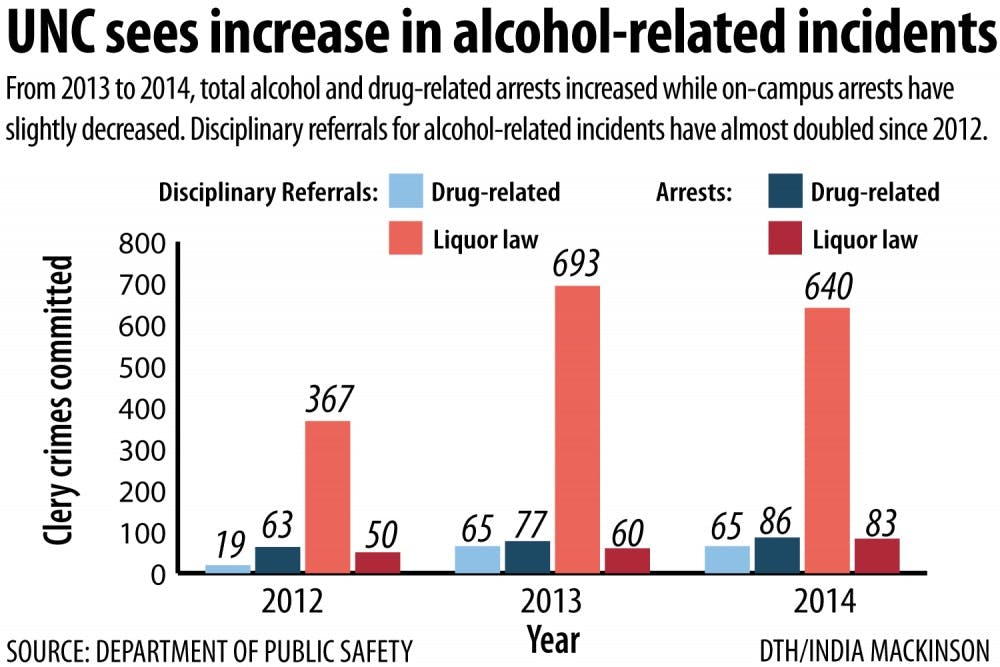The total number of liquor law arrests on campus jumped from 27 arrests in 2013 to 35 in 2014. Drug-related campus arrests decreased from 65 arrests to 55.
Alcohol-related disciplinary referrals decreased slightly, while drug-related referrals stayed the same.
While there was not a tremendous spike in numbers, the continued pervasiveness of these substances on campus raises concern, said Jonathan Sauls, dean of students for student affairs and committee chairperson for the High Risk Alcohol and Substance Abuse Working Group, created in February.
“The data simply reinforces what we know, and that is that alcohol remains one of the most prevalent problems on this or any other college campus,” Sauls said. “And so we are going to be taking a look at this from a comprehensive standpoint.”
Sauls said the security report statistics do not reflect citations and arrests given at off-campus parties. He said he thinks that since two-thirds of students live off campus, the report is only a narrow view of the University’s drug and alcohol problem.
Department of Public Safety spokesperson Randy Young said a good portion of the arrests might be from campus visitors.
“We host an awful lot of special events here on campus — we have football games, home basketball games,” Young said. “I believe that Halloween accounts for a good portion of (the arrests).”



